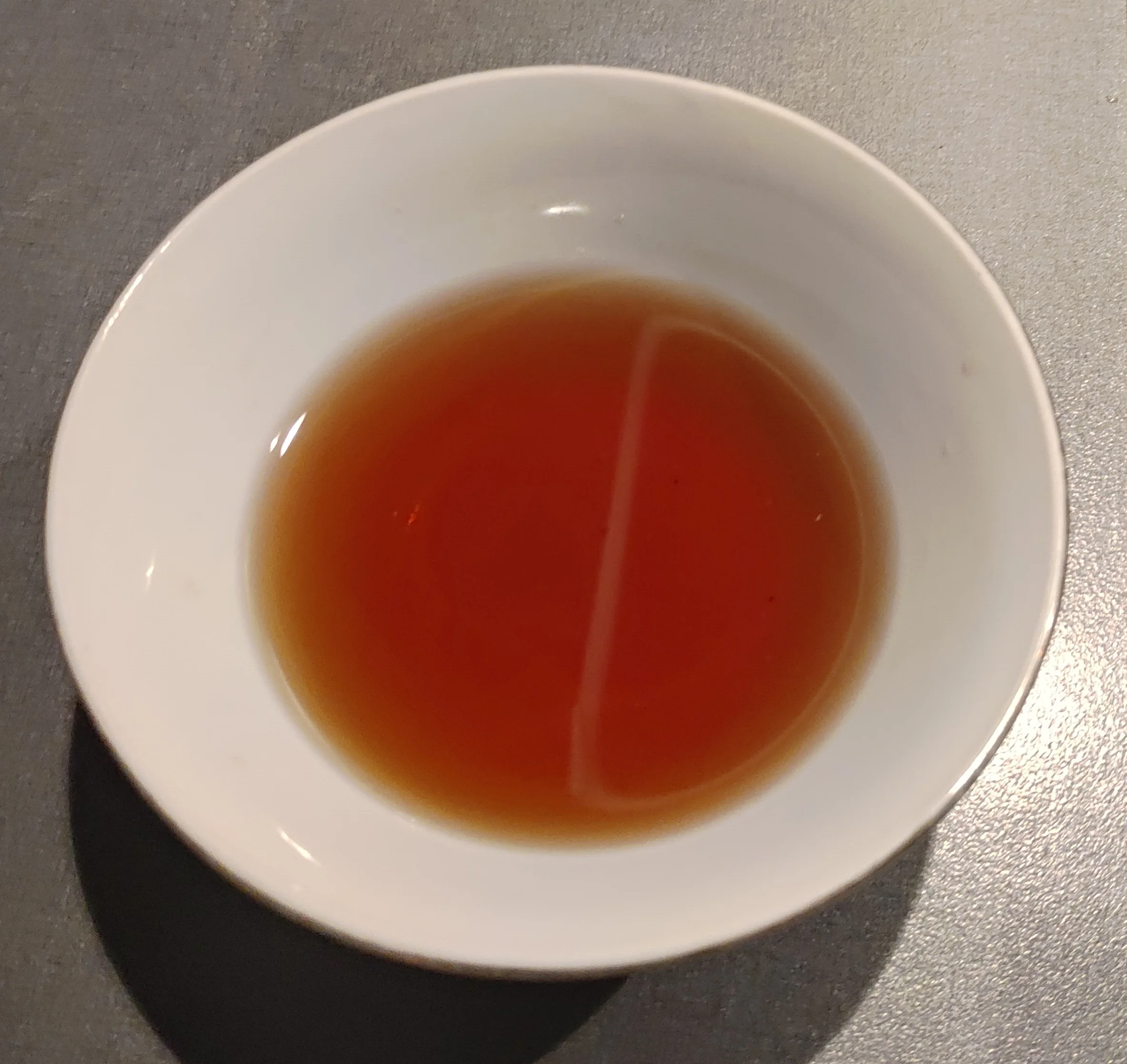Does Fish Sauce Go Bad? The Guide to Shelf Life & Spoilage
Fish sauce, a liquid condiment primarily made from fermented fish like anchovies, mackerel, krill, or even squid, is a cornerstone of East Asian cuisines. It boasts a rich, savory flavor that’s essential to the character of many dishes.
Contents
- Does Fish Sauce Go Bad
- Does Fish Sauce Smell Bad?
- Signs of Spoilage in Fish Sauce
- Determining Fish Sauce Safety
- Storage Best Practices (Avoiding Spoilage)
- What If Fish Sauce Darkens or Salt Crystals Form?
- How to Decide When to Discard
- Troubleshooting Common Issues
- Culinary Uses of Fish Sauce
- Different Types of Fish Sauce
- Substituting Fish Sauce in Recipes
- Homemade Fish Sauce Recipe
- Pairing Fish Sauce with Food and Drinks
- Expert Tips and Tricks for Using Fish Sauce
- Fish Sauce Myths Debunked
- Health Benefits and Concerns of Fish Sauce
- Frequently Asked Questions
Does Fish Sauce Go Bad
The fermentation process, which can last anywhere from several months to years, is key to fish sauce’s longevity. The high salt content acts as a natural preservative, inhibiting the growth of bacteria that cause spoilage. Having worked with fish sauce for years, I’ve found that unopened bottles can last indefinitely if stored in a cool, dark place. Even after opening, fish sauce can maintain its quality for a surprisingly long time, often a year or more.
However, like any fermented product, its flavor profile can evolve over time, becoming more concentrated and intense. While this might be desirable in some dishes, it’s not always ideal.
But with its pungent aroma and seemingly endless shelf life, it’s easy to wonder: does fish sauce actually go bad?
Yes, fish sauce can eventually go bad, but it’s rare due to its high salt content and fermentation process. An unopened bottle can last indefinitely if stored properly, and even an opened bottle can keep for a year or more. However, it’s important to be aware of signs of spoilage, such as an off odor, changes in texture, or visible mold.
READ: How to Know if Kale is Bad
Does Fish Sauce Smell Bad?
Absolutely yes. Fish sauce, renowned for its umami punch, does have a pungent, distinct aroma that can be off-putting to some. It’s a fermented product, after all, and that comes with a certain funk. However, the smell shouldn’t be repulsive or rotten. High-quality fish sauce brands tend to have a more balanced and less offensive aroma than lower quality ones, so it’s worth exploring different options to find one that suits your nose and palate.


Signs of Spoilage in Fish Sauce
While fish sauce has a long shelf life, it’s not invincible. Here are a few signs that your bottle might have gone bad:
- Off Odor: Fresh fish sauce has a strong, pungent smell, but it shouldn’t be unpleasant. If your fish sauce smells rancid, sour, or just “off,” it’s likely spoiled.
- Changes in Texture or Appearance: Look out for any visible mold, excessive sediment, or a significant alteration in color. While some sediment is normal, especially in unfiltered fish sauce, it should dissipate when the bottle is shaken.
- Strong, Pungent Smell: If the aroma of your fish sauce has become overwhelmingly strong or pungent, it could be a sign of spoilage. When in doubt, trust your senses. If something seems off, it’s best to discard the fish sauce to avoid consumption of a potentially spoiled item.
Determining Fish Sauce Safety
Assessing the safety of expired fish sauce requires considering a few crucial factors. Many people wonder, ‘how long does fish sauce last after expiration date?’ The answer varies depending on the brand and storage conditions. The average shelf life of fish sauce ranges from 1 to 4 years.
Some manufacturers, like Red Boat Fish Sauce, even specify a 36-month period post-manufacture for peak product quality. When stored properly, fish sauce generally poses minimal health risks. It’s rare for it to harbor harmful bacteria that cause foodborne illness.
However, an improperly stored bottle might develop spoilage, potentially leading to symptoms like nausea, vomiting, diarrhea, or stomach cramps.
Assessing Fish Sauce Safety: A Step-by-Step Guide
- Odor: Fresh fish sauce should have a distinct, pungent smell. If you notice an unpleasant or strange odor, it could indicate spoilage.
- Visual Inspection: Look for any signs of mold, unusual color changes, or excessive sediment. If you find any of these, it’s best to discard the sauce.
- Taste Test (Optional): If the fish sauce passes the smell and visual tests, you can do a small taste test to assess the quality. If the flavor deviates significantly from the normal flavor profile, avoid using it.
Understanding Expiration Dates and Fish Sauce Safety
Remember, the expiration date on fish sauce is more of a guideline for peak quality than a strict safety cutoff. Due to its fermenting nature, fish sauce is often safe to consume beyond this date, although the quality might diminish. However, individuals with weakened immune systems or those particularly susceptible to harmful bacteria should exercise heightened caution with expired condiments.
Storage Best Practices (Avoiding Spoilage)
Proper storage is key to maintaining the quality and extending the shelf life of your fish sauce. Here are specific guidelines for effectively storing both unopened and opened bottles, along with tips for maximizing longevity. Always be vigilant for any signs of spoilage, regardless of how you store your fish sauce.
Unopened Fish Sauce Storage (1-3 years shelf life)
Unopened bottles of fish sauce should be stored in a cool, dark place like a pantry or cupboard, away from heat sources and direct light. This helps maintain the quality of the fish sauce by ensuring a consistent, cool temperature.
Refrigeration is not necessary for unopened bottles, and you might be wondering, “Does fish sauce go bad if not refrigerated?” The answer is generally no, as the high salt content acts as a preservative. However, storing it in a cool, dark place will help it last longer and retain its quality.
Opened Fish Sauce Storage (1-3 years shelf life)
Once opened, it’s crucial to keep the bottle tightly sealed and refrigerate it. The fridge’s cold temperature slows down the degradation process, preserving the flavor and extending the shelf life of the fish sauce up to 12 months past the best-by date.
In fact, many people wonder, “How long does fish sauce last in the fridge?” With proper storage, it can easily last a year or more.
Factors Affecting Fish Sauce Shelf Life
Fish sauce boasts a lengthy shelf life due to its high salt content, which acts as a preservative. However, exposure to light, heat sources, and improper storage can accelerate spoilage. Always practice good hygiene when handling the bottle to prevent contamination, and make sure to seal it tightly after each use.
READ: Sabana De Res
What If Fish Sauce Darkens or Salt Crystals Form?
You might notice salt crystals forming in bottles of fish sauce, even when refrigerated. Don’t be alarmed! This is a natural occurrence, especially with brands like Red Boat or Son. I’ve even had experts like Danny and Cuong reassure me about this. If the fish sauce darkens in color or its flavor intensifies, it simply means it has aged a bit. If this happens, just use a little less than usual in your cooking to compensate for the stronger taste. Whether you refrigerate fish sauce or not often depends on the brand, how frequently you use it, and how long you plan to keep it.
Regardless of storage method, always remember to close the cap tightly after dispensing fish sauce. This simple step will help to prevent moisture loss and slow down the formation of crystals. It’s also a good idea to give the bottle a quick glance and measure before each use. If you notice any “nuoc mam,” the Vietnamese term for fish sauce crud buildup, simply wipe the rim with a clean cloth.
While room temperature storage is generally fine, some fish sauce brands, especially those with lower salt content, can become gassy or develop a stronger aroma at warmer temperatures. If you notice this happening, try moving the bottle to the fridge. This can help to slow down fermentation and preserve the flavor of the sauce.
Signs of Spoilage
Beyond the basics, a deeper look can reveal more subtle clues about your fish sauce’s condition:
- Appearance: While normal fish sauce has a smooth texture, some sediment is expected, especially in unfiltered varieties. However, cloudiness or a slimy texture could be warning signs.
- Mold Growth: Visible mold growth, either on the surface of the sauce or inside the cap, is a clear sign of spoilage. The bottle should be discarded immediately.
- Storage Duration: An opened bottle kept at room temperature may remain good for 1 week to 1 month, but refrigeration is advised for longer storage. In the refrigerator, properly stored fish sauce can last for several months, up to a year.
It’s crucial to routinely inspect your fish sauce for any changes in appearance, smell, or taste. By paying attention to these sensory characteristics and adhering strictly to recommended storage practices, you can ensure the quality and safety of your fish sauce.
How to Decide When to Discard
Deciding whether to discard fish sauce involves a thorough inspection and consideration of several factors. If you’ve been storing it correctly and it’s within a reasonable time frame after the “best by” date, a taste test can be a helpful way to determine its quality and freshness. However, if you notice any signs of spoilage, such as an altered appearance, odor, or taste, it’s best to err on the side of caution and discard the sauce.
Here’s a quick inspection checklist to help you decide:
- Examine: Look for any visible signs of spoilage like mold, cloudiness, or excessive sediment.
- Smell: Assess the odor. Does it smell fresh and pungent, or has it turned unpleasant?
- Taste (Optional): If the fish sauce passes the first two tests, taste a small amount. If you detect any off flavors, it’s time to discard the bottle.
Troubleshooting Common Issues
Maintaining the quality and flavor of fish sauce is crucial for its diverse culinary applications. Let’s address some common issues you might encounter and provide guidance on dealing with them:
Dealing With Sedimentation
It’s not uncommon to find sedimentation at the bottom of the bottle. This is often just protein precipitation or salt crystals. To troubleshoot this:
- Inspect: Check whether the sediment is a normal occurrence or a sign of spoilage.
- Shake Gently: If it’s simply salt or protein, it should dissolve easily when shaken. If so, the fish sauce is good to use.
- Discard if Uncertain: If the sediment appears unusual or has an off smell or changes in color, it’s safer to discard the bottle.
Preventing Flavor Loss
Preserving peak quality and flavor requires proper storage. Follow these key tips:
- Store Properly: Keep unopened bottles in a cool, dark place with the cap tightly sealed.
- Refrigerate: After opening, refrigerate the fish sauce to prolong its quality.
- Note Flavors: If the fish sauce seems to have lost its distinct flavor profile, it’s still safe to consume but might not be ideal for enhancing the taste of dishes.
Culinary Uses of Fish Sauce
Fish sauce is incredibly versatile and can be used in various ways to enhance the flavors of a wide range of dishes. It’s a staple in many Southeast Asian cuisines, adding a savory depth and umami punch to stir-fries, noodle dishes, soups, and curries.
A few drops can transform a simple vegetable dish or elevate a meat-based recipe. Fish sauce is also a key ingredient in marinades for fish, chicken, or pork, tenderizing the meat and infusing it with complex flavors.
Additionally, it’s the base for many dipping sauces and condiments, like the Vietnamese dipping sauce “nước chấm,” which balances sweet, sour, salty, and spicy flavors.
Different Types of Fish Sauce
Fish sauce isn’t a one-size-fits-all ingredient. Each country and region boasts its own unique style, each with its own distinct flavor profile. Vietnamese “nước mắm,” often considered the gold standard, is prized for its clean, balanced flavor with subtle sweetness. Thai “nam pla,” on the other hand, is typically saltier and more pungent. Filipino “patis,” while also made from fermented fish and salt, is often lighter and sweeter.
These differences stem from variations in the types of fish used (anchovies are common), the length of fermentation, and additional ingredients like sugar or spices.
Substituting Fish Sauce in Recipes
For those who are vegetarian, vegan, or simply don’t have fish sauce on hand, there are a few substitutes worth considering. Soy sauce, although different in flavor, offers a similar umami boost. Tamari, a gluten-free version of soy sauce, is another option.
If you’re looking for a more complex flavor, try mushroom-based sauces or seaweed flakes, which can add a similar depth and savoriness to dishes.
READ: Substitutes for Dark Soy Sauce
Homemade Fish Sauce Recipe
While high-quality fish sauce is readily available at most grocery stores, some adventurous cooks enjoy making their own. The process involves layering fresh anchovies and salt in a jar and allowing it to ferment for several months.
The resulting liquid is strained and bottled, creating a personalized and flavorful condiment. However, it’s important to note that homemade fish sauce requires careful attention to hygiene and safety to avoid spoilage.
Pairing Fish Sauce with Food and Drinks
Fish sauce plays well with a wide range of flavors, making it an excellent pairing ingredient. Its salty, umami notes complement the bright, acidic flavors of citrus fruits like lime or lemon. It also balances the sweetness of palm sugar or honey, creating a harmonious flavor profile.
In terms of herbs, fish sauce pairs exceptionally well with pungent herbs like cilantro, mint, and Thai basil.
As for drinks, a crisp, acidic white wine or a refreshing lager can cut through the richness of fish sauce, providing a delightful contrast and cleansing the palate.
Expert Tips and Tricks for Using Fish Sauce
Here are a few pro tips to maximize your use of fish sauce:
- Start small: A little goes a long way. Begin by adding a few drops to your dish and gradually increase until you achieve the desired flavor.
- Balance flavors: Don’t just rely on fish sauce alone. Combine it with other seasonings like sugar, lime juice, garlic, chili peppers, or ginger to create a well-rounded and balanced flavor profile.
- Don’t be afraid to experiment: Fish sauce isn’t just for Asian cuisine. Try adding it to your next Bloody Mary for a savory twist, or drizzle it over grilled vegetables for an unexpected depth of flavor.
Fish Sauce Myths Debunked
Despite its pungent aroma, fish sauce doesn’t necessarily make dishes taste fishy. When used in moderation, it adds a subtle umami depth that enhances other flavors without overpowering them.
It’s also not as intimidating as it might seem. With a little practice and experimentation, you’ll be using fish sauce like a pro in no time.
Health Benefits and Concerns of Fish Sauce
Fish sauce offers some surprising health benefits. It’s a good source of probiotics, which are beneficial bacteria that promote gut health and digestion. It also contains essential minerals like iron and calcium.
However, it’s important to note that fish sauce is very high in sodium, which can be a concern for individuals with high blood pressure or other dietary restrictions. As with any food, moderation is key. Read here case study by NIH.
Conclusion
In conclusion, fish sauce is a fascinating and versatile ingredient that adds a unique depth of flavor to many dishes. By understanding its shelf life, recognizing signs of spoilage, and following proper storage practices, you can ensure its quality and safety for all your culinary adventures. Whether you’re a seasoned chef or a home cook, embracing fish sauce can open up a world of culinary possibilities and elevate your dishes to new heights.
___________________________________
Frequently Asked Questions
How long is fish sauce good once opened?
When stored properly in a cool, dark place, an unopened bottle of fish sauce can retain its quality for two to three years, if not longer. Opening the bottle will shorten the shelf life, but under similar conditions, it should still be good for approximately a year without significant quality loss.
Can I use expired sauce?
An expired condiment like fish sauce is usually safe to consume, but it may no longer be at its peak quality. Color and texture changes, such as fading color or increased wateriness, often signify that the fish sauce is past its prime.
Can I use fish past the expiration date?’
While fish sauce is a different product altogether, it’s important to remember that raw fish, like beef steaks, should generally not be eaten 24 hours after their “use-by” date. If the meat has gone off, it will likely be brown or grey in color and smell unpleasant. Smoked fish, like salmon or kippers, can last up to three days in the fridge after the “use-by” date. However, fresh fish should be thrown away 24 hours after purchase if not eaten.
Is fish sauce safe?
Consuming fish sauce regularly may not be the healthiest option due to its high sodium content. It’s also unsuitable for vegetarians and vegans, as it includes anchovies or shrimp, which are animal byproducts.
Can I use fish sauce if I’m allergic to shellfish?
While fish sauce is made from fish, not shellfish, it’s best to consult your doctor if you have any concerns about potential allergic reactions.
Is fish sauce gluten-free?
Most fish sauces are gluten-free, but it’s always a good idea to check the label to be sure.
Can I freeze fish sauce?
While freezing won’t harm the fish sauce, it’s not necessary as it has a long shelf life when stored properly in a cool, dark place.





